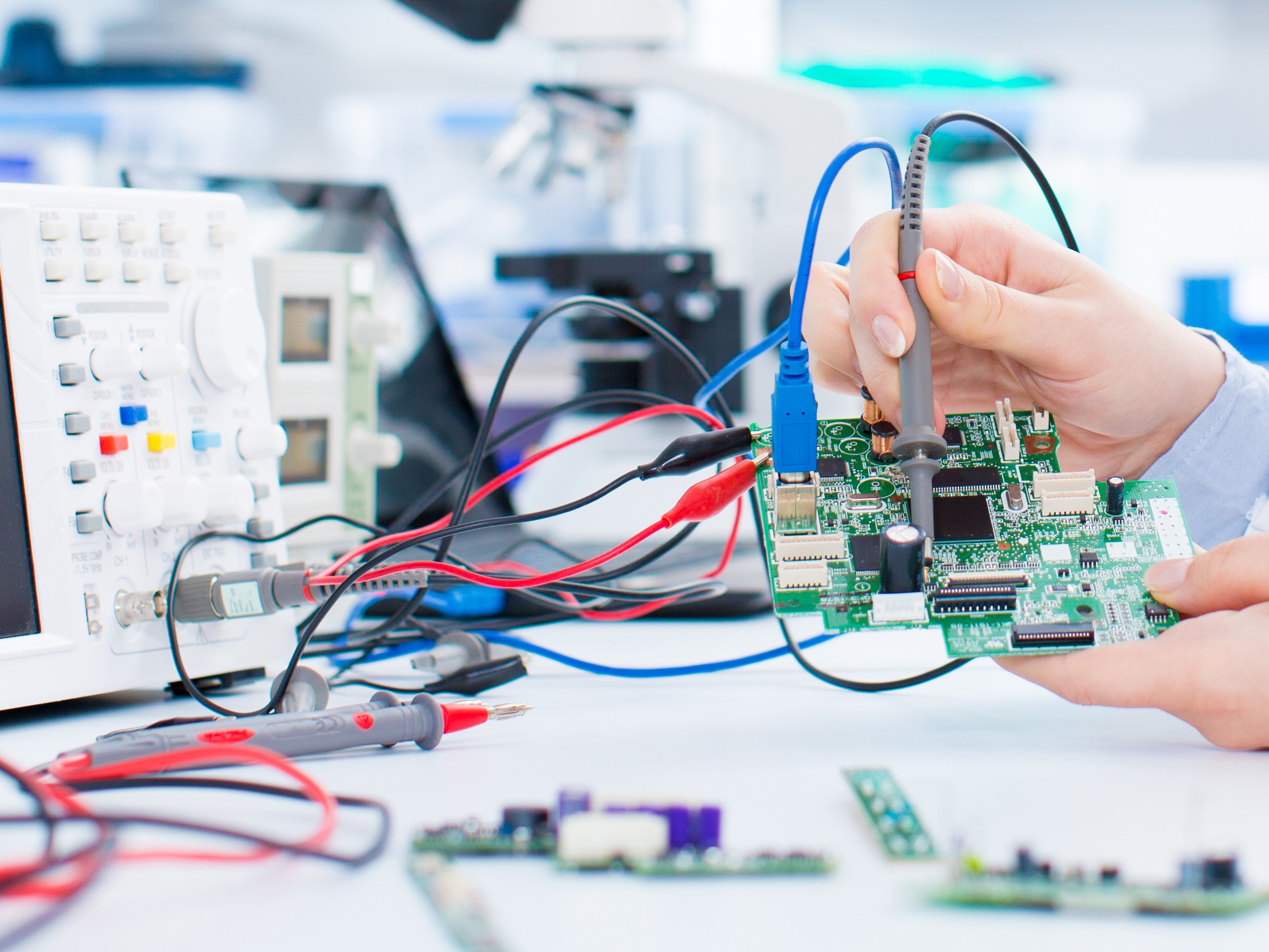COURSES
The master program offers specialized and advanced training with two profiles: research/academic and professional.
The research/academic profile allows to a) obtain one specialtiy or b) adapt the curriculum according to the student preference. Two specialities are offered: I) Power electronics and energy management systems, and II) Network sensing and control electronic systems.
The professional profile offers external internships in collaboration with companies of the electronic sector.
The master curriculum comprises 30 ECTS of core subjects, 18 ECTS of optative subjects and a master's final project of 12 ECTS.

Compulsory Subjects:
- Signal and data processing techniques
- Signal conditioning and data adquisition
- Digital electronic systems design
- Real-time electronic systems
- Advanced photonics and microelectronics
- Advanced power electronics
- Electronic control systems design
- Master's final project

Power electronic and energy management systems speciality (research/academic):
- Research methodology
- Advanced signal processing and control for power systems
- Electronic systems for distributed energy management and electrical microgrids
- Power electronics for traction applications

Network sensing and control electronic systems speciality (research/academic):
- Research methodology
- Embedded systems and web interfaces for IoT
- Systems-on-chip design
- Network positioning systems

Professional profile courses:
- Project management
- Product-oriented electronic design
- External Internship
ADMISSION
Duration and start date
One academic years, 60 ECTS credits. Starting September.Fees and Grants
Approximate fees for the master’s degree, excluding degree certificate fee, 4.501 € (5.044 € for non-EU residents).More information about grants and scholarships.
Timetable and delivery
Afternoon classes.Language of instruction: Spanish (English friendly)
Location: Engineering School at the University of Alcala (EPS-UAH)
Student Profile
This master's degree is intended for engineering graduates with fundamental training in electronics, physics, mathematics and programming, as well as an interest in the development and/or research in applications of electronic systems and continuous learning with critical thinking. To address the master practical and experimental components, electronic laboratory experience is required. Between the engineering degree studies that facilitate following-up the master's degree are: Graduated in Communications Electronics Engineering, Electronics and Industrial Automation Engineering and Telemcomunication Technologies Engineering.ACADEMIC INFORMATION
-
M202. Master's Degree in Electronic Engineering. On-site teaching modality.
The academic year includes 2 semesters. For the 2025/26 academic year, the program is offered exclusively in an on-site format.
More information about the subjects and teaching guides











